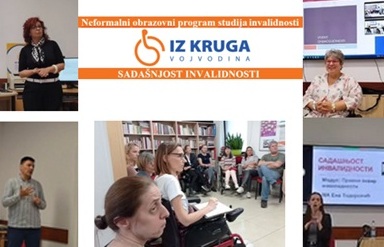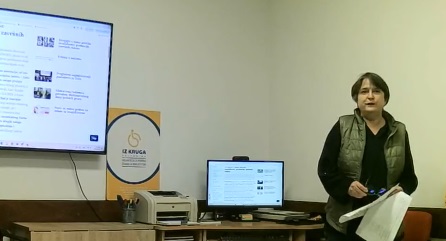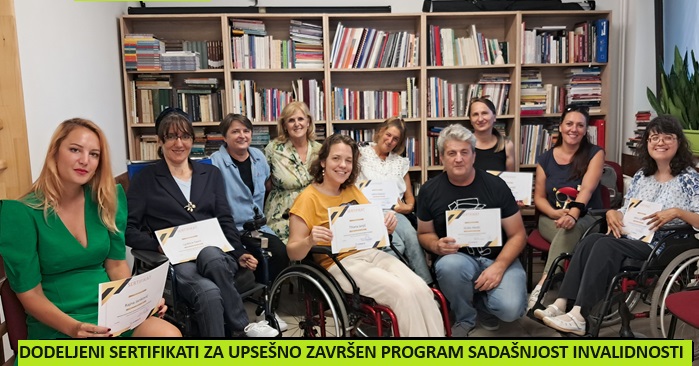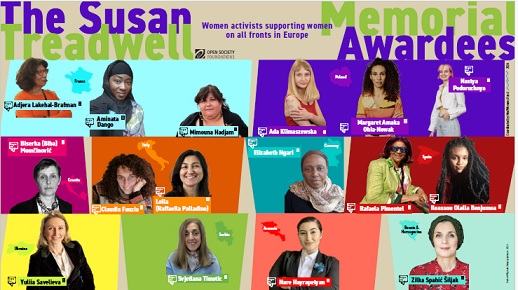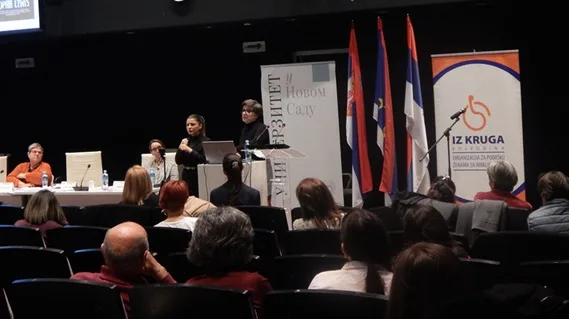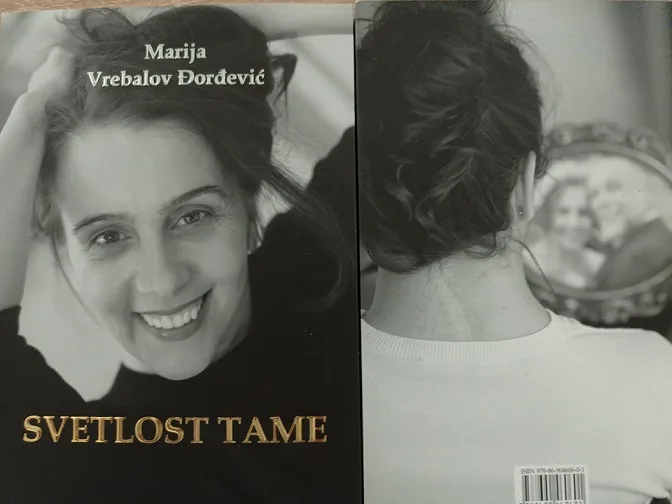IZ KRUGA VOJVODINA had been involved in the sixth annual Feminist No Borders Summer School in Novi Sad, one of the six cities where it was held this year from June 14 to 18, 2023. Apart from Novi Sad, the school was held simultaneously in Athens, Berlin, Lisbon, New Delhi, and Palermo. The sixth annual Feminist No Borders Summer School is organized by the Feminist Autonomous Center for Research (FAC Research) located in Athens, and in collaboration with local feminist activists in each of the nodes. FAC Research is a space for learning, reflection, collaboration, support, exchange, knowledge production, and political interventions…
The focus of this year’s Feminist No Borders Summer School was on abolitionist concern as a starting point for thinking about feminist practices of resistance in the context of current struggles to abolish the borders and carceral tendencies. Abolitionist care is understood as a form of collective care that seeks to envision and establish a world without borders, prisons, and carceral logic, and as a political response to the privatization and denial of care, health, food, and housing. Liberal self-care has become an individualized responsibility in the context of the organized withdrawal of resources and care by the states, thus constructing care as a product that can be bought, and consequently, shifting the burden on the people whom systems victimize, blame, or punish for failing to cope.
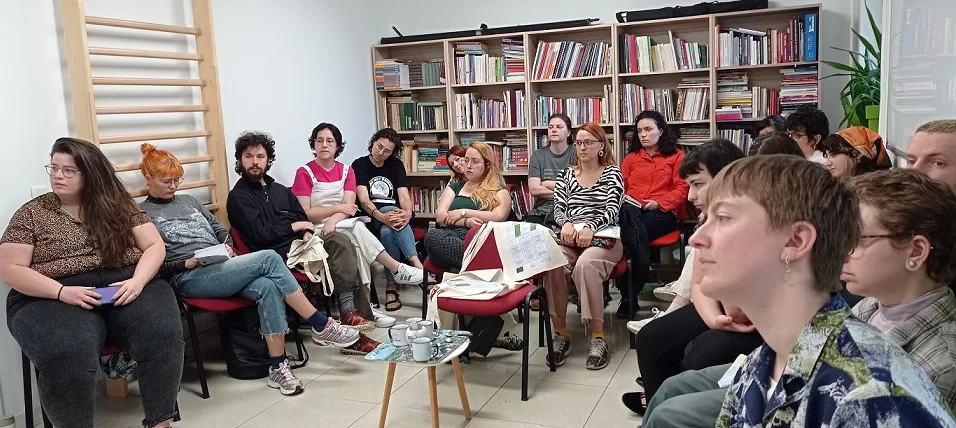
The participants of the Summer School stayed in the office space of IZ KRUGA VOJVODINA on June 16, 2023, from 9:30 a.m. until 12:00 noon in order to inform and discuss the topic Obstacles that prevent people with different types of disabilities to realize their right to health.
The participants were greeted by Svjetlana Timotic and Suzana Belos who thanked the local organizer Vanja Petrović for inviting IZ KRUGA VOJVODINA to be a part of this significant global feminist action. They presented the office space to the participants and handed them a welcome gift – a canvas bag with printed guidelines for dealing with women with disabilities and a printed copy of the publication Quarantine Notes.
After that, the participants of the summer school with the organizer Vanja Petrovic held a fifteen-minute preparatory meeting for the second day of the Summer School in Novi Sad.
The working part of the meeting in IZ KRUGA VOJVODINA was led by Veronika Mitro. First, she presented the organization’s activities and services for the promotion and protection of the rights of women with disabilities and, after that, gave an overview of the de jure and de facto situation in the field of health care for people with disabilities in the Republic of Serbia. She spoke about the laws that regulate health care, health insurance, and types and content of health care. She then listed numerous obstacles that people with different types of disabilities face in accessing health care and exercising their right to health. In the end, she listed a series of architectural, communicational, informational, and obstacles that arose from the way health care is administered that women with disabilities living in the community and those living in institutions experienced at some stage of their life cycle, from childhood to old age.
In the session in IZ KRUGA VOJVODINA twenty participants from countries around the world took part: Brazil, Croatia, Germany, Great Britain, Norway, Macedonia, Romania, Serbia, Spain, Sweden, and the United States of America. The participants positively assessed the gathering and pointed out that, although they had no special expectations from this meeting, they were greeted kindly and respectfully, felt welcome, learned a lot, and expanded their horizons.
The participants of the Summer School actively participated in the working part. During the presentation, they talked about health care in their countries, presented examples of violations of the human rights of women with disabilities, and also examples of good practices resulting from women’s activism that they witnessed in their local communities.
The conclusion of socializing in IZ KRUGA VOJVODINA was, that health care in Serbia, despite good laws, is available only to privileged individuals, just the same as in the countries from which the participants of the Summer School were. Speaking of health care, it became apparent that health protection is not provided equally to everyone, and that while some people enjoy health care, others do not, and among those „others“ are women and men with disabilities. Institutional health care relies on the norms of the nuclear hetero family, exploitation, and prejudices of those who care about others based on gender, race, and ability. And that, unfortunately, there is a long way for women with disabilities all around the world to reality without borders.
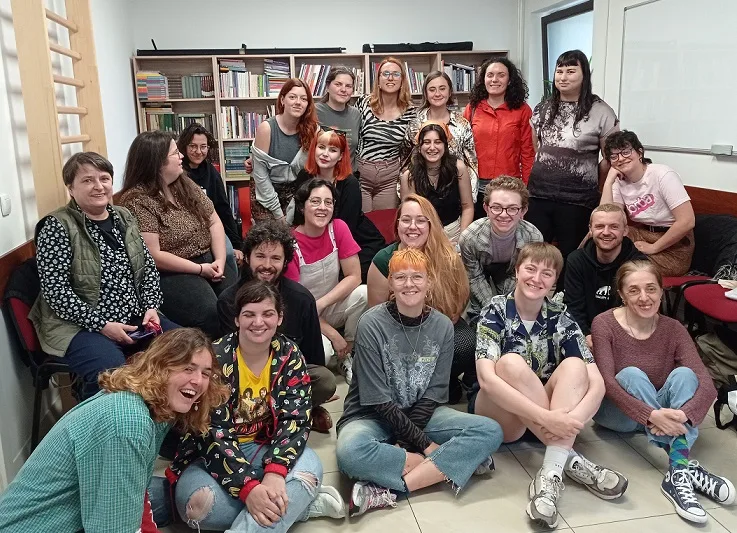
About The Summer School Feminist no Borders
The Summer School Feminist no Borders is an anti-racist, feminist LGBTQI+ affirmative space organized once a year for the last six years simultaneously in multiple locations around the world seeking to remove the hegemony of the academic community as the primary place from which knowledge is produced and distributed by providing a space for the exchange of experiences.
In the Summer School, alternative ways of learning, listening and talking to each other are practiced, reshaping and establishing the political communities through which it is necessary to struggle.
Over the previous years, within the annual summer schools, discussions have been made on the borders of violence, prisons, and patriarchal forms of oppression and control, while tools and practices on how to deconstruct carceral logic, and how to replace humanitarian responses with feminist solidarity were shared.
All organizers and invited participants volunteer and there are no tuition fees to attend this summer school, instead confirmed participants become members of FAC Research by making a solidarity contribution which will once be distributed to the community organizations involved in the summer school as support to their actions in the struggle against borders.
